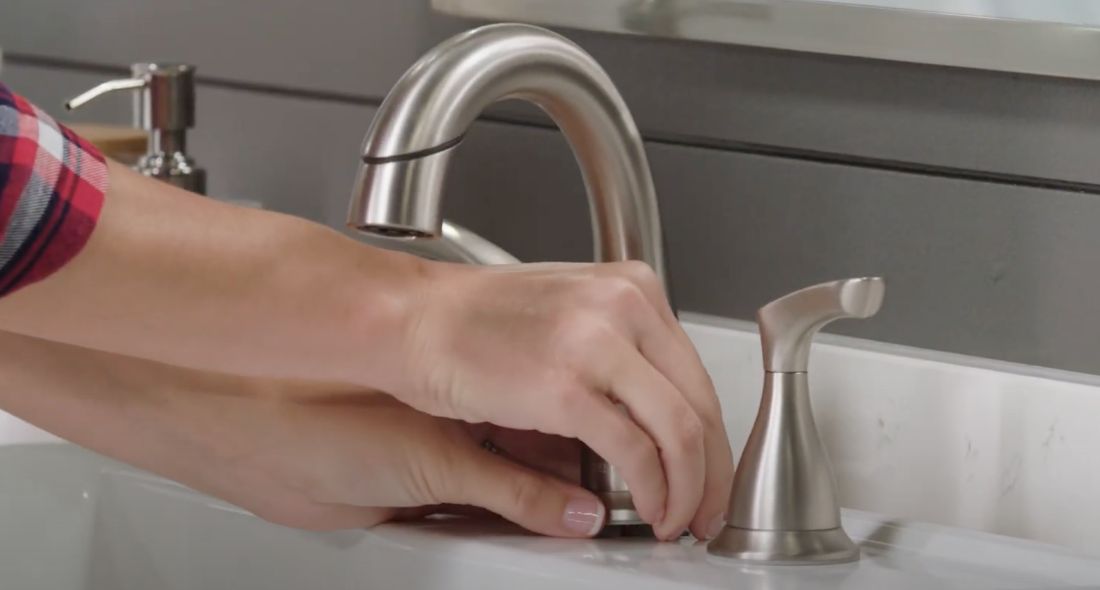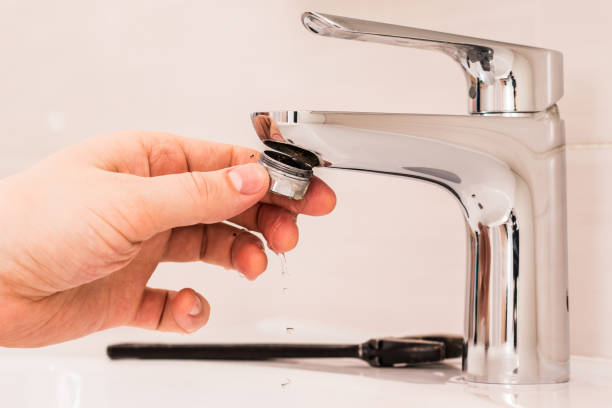Learning the Relevance of Dealing with a Malfunctioning Faucet
Learning the Relevance of Dealing with a Malfunctioning Faucet
Blog Article
Everyone seems to have their own individual idea about Why It's Important to Fix Leaky Faucets.

Dripping faucets might seem like a small inconvenience, but their impact exceeds simply the nuisance of the noise. From drainage to sustaining unneeded monetary costs and health risks, overlooking a trickling tap can bring about different repercussions. In this write-up, we'll delve into why it's essential to address this usual household problem quickly and effectively.
Waste of Water
Ecological Impact
Dripping taps contribute substantially to water wastefulness. According to the Epa (EPA), a solitary tap trickling at one drip per second can waste greater than 3,000 gallons of water per year. This not just pressures water resources but additionally influences ecological communities and wild animals based on them.
Step-by-Step Overview to Dealing With a Dripping Tap
Devices Required
Prior to trying to fix a trickling faucet, gather the required tools, including an adjustable wrench, screwdrivers, substitute components (such as washers or cartridges), and plumber's tape.
Typical Faucet Issues and Their Solutions
Identify the type of faucet and the details issue causing the drip. Common issues include worn-out washers, rusty shutoff seats, or damaged O-rings. Refer to maker instructions or on the internet tutorials for step-by-step support on repairs.
Financial Costs
Raised Water Costs
Past the ecological influence, leaking taps can pump up water costs considerably. The collected waste gradually equates right into higher utility expenses, which can have been avoided with timely repairs.
Possible Building Damage
Moreover, long term leaking can cause harm to components and surfaces bordering the faucet. Water buildup can create staining, deterioration, and also structural issues if left ignored, causing added fixing expenses.
Health Concerns
Mold and Mold Development
The continuous presence of dampness from a trickling tap develops a suitable setting for mold and mildew and mildew development. These fungis not only jeopardize interior air top quality but additionally pose wellness threats, especially for people with respiratory system problems or allergic reactions.
Waterborne Diseases
Stagnant water in dripping faucets can come to be a breeding place for microorganisms and various other virus, increasing the risk of waterborne diseases. Contaminants such as Legionella microorganisms flourish in stationary water, possibly bring about serious ailments when ingested or breathed in.
DIY vs. Professional Repair
Advantages and disadvantages of DIY Repair Service
While some might attempt to repair a dripping faucet themselves, DIY repair work include their own collection of difficulties. Without proper knowledge and devices, do it yourself attempts can worsen the issue or bring about incomplete fixings, prolonging the issue.
Advantages of Hiring a Specialist Plumber
Working with an expert plumber makes certain that the underlying root cause of the leaking tap is attended to successfully. Plumbings have the proficiency and equipment to identify and fix faucet issues successfully, conserving time and lessening the threat of more damages.
Environmental Duty
Individual Payment to Preservation
Taking duty for repairing leaking taps straightens with wider efforts toward water preservation and environmental sustainability. Every person's activities jointly make a significant influence on maintaining valuable resources.
Lasting Living Practices
By prioritizing punctual fixings and embracing water-saving habits, individuals contribute to lasting living practices that benefit both present and future generations.
Safety nets
Regular Upkeep Tips
To stop dripping faucets, perform regular upkeep such as cleaning up aerators, checking for leakages, and changing damaged parts quickly. Furthermore, take into consideration installing water-saving gadgets or upgrading to much more efficient fixtures.
Importance of Prompt Repairs
Resolving trickling taps as soon as they're observed protects against further water wastage and potential damages, eventually conserving both water and cash in the future.
Influence On Residential Property Worth
Understanding of Well-Maintained Residential Property
Maintaining a home in good condition, consisting of dealing with maintenance problems like leaking taps, boosts its perceived value and charm among potential purchasers or tenants.
Influence on Resale Worth
Qualities with well-kept plumbing fixtures, consisting of taps, command greater resale worths in the real estate market. Addressing dripping taps can add to a positive perception during building inspections and negotiations.
Verdict
Resolving a trickling tap exceeds mere comfort; it's a necessary step towards preserving water, minimizing financial expenses, and guarding health and property. Whether through DIY fixings or professional help, doing something about it to fix trickling faucets is a little yet impactful method to advertise accountable stewardship of resources and add to a healthier, more sustainable future.
How to Fix a Dripping or Leaky Faucet
A leaking faucet is one of the most common problems that homeowners encounter, but it being commonplace doesn’t make it any less annoying. The constant drip drip drip of a leaking bathtub faucet, showerhead, or sink tap can disturb your home’s serenity. Left neglected, a dripping faucet can also result in higher water bills and discoloration or mold growth in your sink or plumbing fixtures.
Fortunately, you don’t have to be a trained plumber to know how to stop a dripping faucet. With some basic tools, replacement parts, and a little patience, leaky faucet repair is a breeze. In this article, we’ll explain what causes dripping faucets and how you can fix them.
What Causes a Leaking Faucet?
Kitchen and bathroom faucets come in all manner of designs, but most involve some combination of valves, O-rings, seals, and washers. The O-ring is usually the weakest link, but any one of these pieces can wear down over time. Heat, moisture, temperature fluctuations, minerals, mold, and movement can contribute to warping and corrosion, breaking the watertight seal. This just comes with the territory of being a homeowner. Everything is always subject to wear and tear, and some component parts of your appliances and fixtures need to be replaced on occasion. At least replacement O-rings are cheap!
More rarely, dripping faucets can be a symptom of excessively high water pressure. Were this the case in your home, you would probably notice that the leak is not isolated to one faucet. Water pressure issues are harder to resolve on your own. We recommend contacting a professional plumber if you suspect your water pressure is too high.
How to Fix a Dripping Faucet
Pipe wrench or monkey wrench Allen wrench set Screwdrivers Old towel or rag Shut off the water.
Before you do anything, you need to turn off the water to keep from drenching your kitchen or bathroom. You should find a valve under the sink and against the wall. Once you’ve turned this valve, try turning the faucet on to confirm that the water source has been cut off.
If you can’t locate your local valve for the faucet you’re working on, you can always shut off the water to the house at the main valve. Of course, this will prohibit anyone from using the sinks, showers, or toilets while you’re working on the faucet that’s giving you trouble.
Plug or block the drain.
You’ll be disassembling the faucet and removing some small bits of hardware. Plug the drain with a stopper or rag to avoid the possibility of a small screw falling into your P-trap.
Take apart the faucet assembly.
There are several varieties of kitchen and bathroom faucets, each with its own manner of assembly. For detailed instructions on how to disassemble your faucet, you can refer to the fixture’s manual or contact the manufacturer. If you know whether you have a ball, disc, cartridge, or compression faucet, you can find detailed schematics online.
In general, you need to begin by removing the faucet handles. You might notice a small screw that you’ll need to remove with a screwdriver or Allen wrench. If you don’t see any visible securing hardware, it’s likely hidden under a decorative cap that can be unscrewed or popped off with flathead screwdriver.
Remove each piece methodically, consulting a schematic when necessary. Take notes or arrange the pieces in such a way to make it easier to correctly reassemble the faucet later.
Remove the cartridge.
Once you’ve removed the handles and securing hardware, you should be able to remove the valve cartridge or stem. Some cartridges will slide right out. Other faucet models will require you to loosen a nut with a pipe wrench before you can remove the valve stem.
Examine the exposed hardware.
With the cartridge or stem removed, inspect the component parts. Check the rubber O-rings for wear and tear. Also examine the seat washer for corrosion or other damage. These pieces are usually the responsible parties for a dripping faucet, but it’s worth inspecting the other component parts while you have the faucet disassembled.
Find replacement parts.
Once you’ve identified which faucet component has failed, find an identical replacement. Your local hardware store should have O-rings, seat washers, and other standard components in stock. If you have a luxury or uncommon faucet, you may have to contact the manufacturer for a replacement part.
It’s a good idea to take your old parts with you to the hardware store so you can compare them with the store’s inventory and be sure you’re purchasing the correct replacement.
Reassemble the faucet.
With your new parts in hand, reconstruct the faucet and handles. Don’t be tempted to overtighten screws or nuts. You might think this could create a better seal, but it can instead damage or bend a delicate part of the assembly and create a new problem for you.
Turn on the water and test the faucet.
The only thing left to do is test your work. Unplug the sink, turn the water back on, and try the faucet. Congratulate yourself on a job well done!
https://www.libertyhomeguard.com/how-to-fix-a-dripping-or-leaky-faucet/

As an enthusiastic reader on Leaky Faucets: Why They Happen & What to Do About Them, I thought sharing that excerpt was worthwhile. Sharing is good. Helping others is fun. Many thanks for taking the time to read it.
Report this page